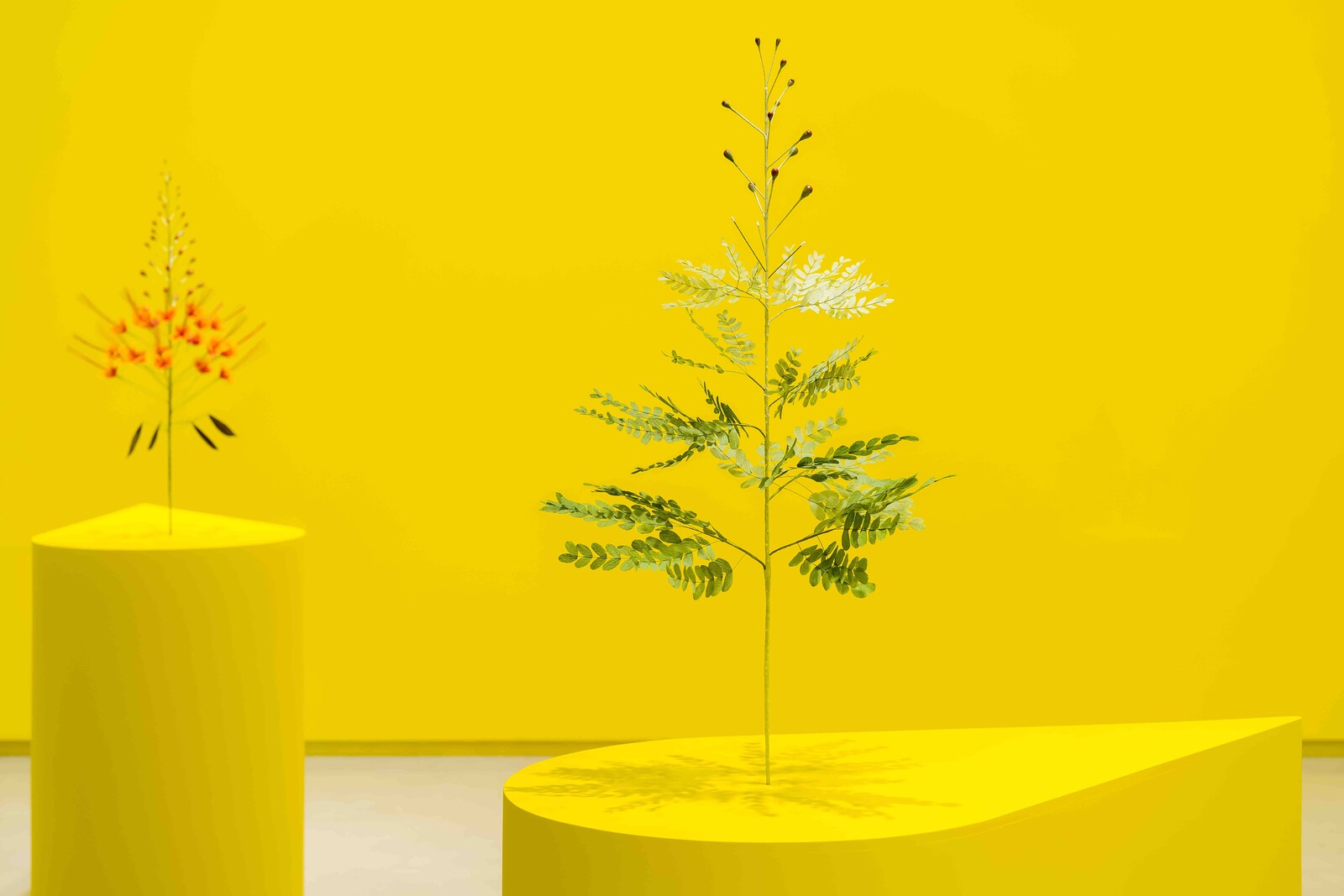Remediation
October 7, 2023–February 26, 2024
The exhibition Remediation focuses on Kapwani Kiwanga’s most recent research into how humans and the natural environment respond to toxicity and undertake regeneration. Kiwanga investigates these events, their intended and unintended outcomes, and the repercussions they pose for the present and future.
Kiwanga’s artistic practice has long underscored the importance of nature’s role in determining the course of history—not only through evolution, but through its ever-shifting response to human intervention, and the important role it plays in both human and environmental health. As she has delved more deeply into environmental events and organic qualities, Kiwanga’s installations and sculptural gestures have become increasingly alluring, both physically and aesthetically. They arouse curiosity through colour, form and texture, while exposing how social and political human histories often work to preside over the natural world.
Throughout the exhibition there are new works by Kiwanga that consider the impacts of different natural phenomena. She explores fire as both a destructive and regenerative force, the industrial pollution of waterways and their potential to be remediated by plant-life, and the importance of shade for agricultural success, all of which are of critical concern in Saskatchewan and around the world today.
The new commissions are exhibited in dialogue with existing artworks—such as The Marias, from Remai Modern’s collection. Through this broader curated selection, Remediation expands on Kiwanga’s research into how botany has long held a relationship to exploitation and resistance of people and environments.
Kiwanga is receiving increasing national and international acclaim for her distinctive and thought-provoking art practice. Drawing on her education in anthropology, comparative religion and art, combined with lived experiences, ongoing research and her commitment to observation, Kiwanga produces artwork in a wide variety of mediums to explore the plurality of history.
After completing studies in Anthropology and Comparative Religion at McGill University, with a focus on medical anthropology, and a period working as a documentary director in the UK, Kiwanga turned to the visual arts and attended École Nationale Supérieure des Beaux-Arts in Paris, where she is now based. In 2018, she received both the inaugural Frieze Artist Award (USA) and the Sobey Art Award (Canada); in 2020 she won the Prix Marcel Duchamp (France); and in 2024 she will represent Canada at the 60th Venice Biennale.
Remediation at Remai Modern is curated by Aileen Burns & Johan Lundh, Co-Executive Director and CEOs. Its presentation at MOCA Toronto was curated by November Paynter, MOCA’s former Associate Director and Chief Curator.
The exhibition is co-organized by Remai Modern and MOCA Toronto.
Remai Modern is situated on Treaty 6 Territory and the Traditional Homeland of the Métis. We pay our respects to First Nations and Métis ancestors and reaffirm our relationship with one another. The museum’s programming is supported by the Frank and Ellen Remai Foundation, the City of Saskatoon, the Canada Council for the Arts, SK Arts and SaskCulture’s Saskatchewan Lotteries Fund.



